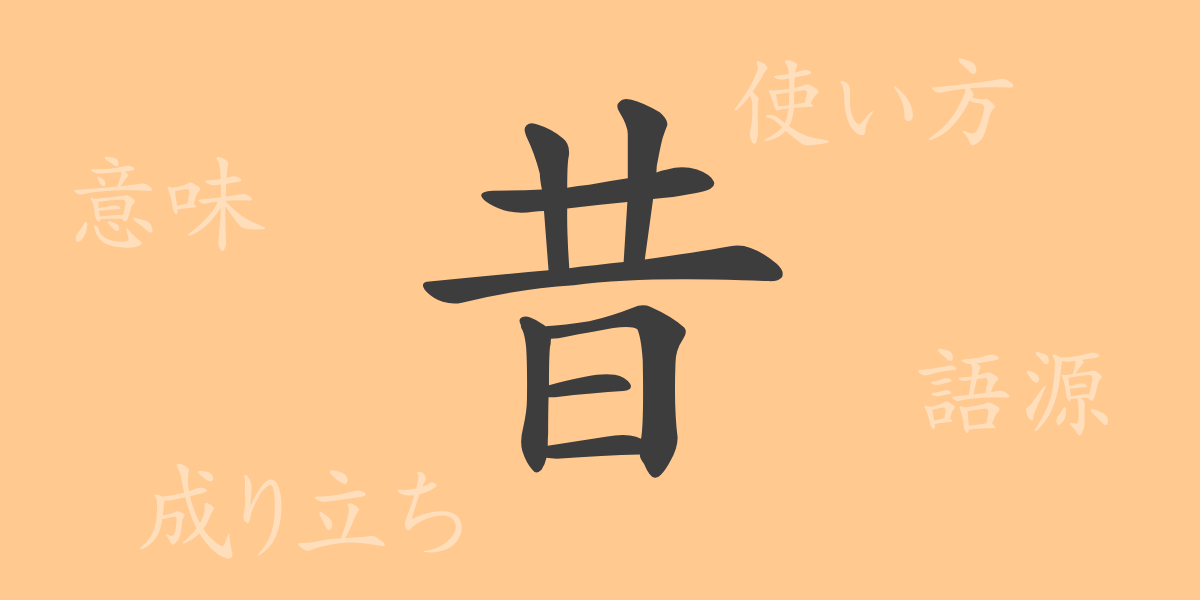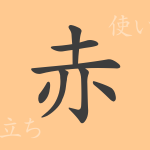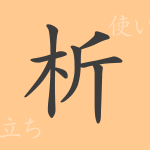In the colorful tapestry of Japanese culture, each kanji not only carries its unique history and meanings but also deeply influences our perception of time. The kanji ‘昔’ (むかし) represents more than just a character; it is deeply rooted in the Japanese psyche. This article delves into the historical background, meanings, and usage of ‘昔’, exploring the rich tapestry of expressions and proverbs it has inspired. Understanding ‘昔’ enriches our present by connecting us with the past.
Origins of 昔
The kanji ‘昔’ evolved from ancient Chinese pictographs representing the overlap of the sun and the moon, symbolizing the passing of time. Initially depicting the moment of sunset, it came to express nostalgia for times past. Brought to Japan with the kanji system, it developed uniquely within the fabric of Japanese culture and language.
Meaning and Usage of 昔
‘昔’ refers to a point in the past or an era long gone, often evoking nostalgia or an old-fashioned aura. Depending on the context, it is read as ‘むかし’, recalling the good old days, old tales, or an era depicted in such stories.
Readings, Stroke Count, and Radical of 昔
‘昔’ holds a significant place in Japanese language and understanding its structure is key to appreciating kanji culture.
- Readings: The on’yomi is ‘セキ’, and the kun’yomi is ‘むかし’.
- Stroke Count: ‘昔’ consists of 8 strokes.
- Radical: The radical is ‘日’ (にち).
Phrases and Proverbs Using 昔
There are numerous idioms, phrases, and proverbs incorporating ‘昔’, each reflecting the depth of Japanese language. For example, ‘昔取った杵柄’ (むかしとったきねづか) means skills or experiences from the past still prove useful today. ‘昔の月は今も円い’ (むかしのつきはいまもまるい) suggests that some truths or values remain unchanged over time. These expressions carry timeless truths and lessons across ages.
Conclusion on 昔
The kanji ‘昔’ transcends its literal form to convey the weight of time and culture, forming a core element of Japanese identity. From its origins to its meanings and the phrases it forms, ‘昔’ is intimately linked with the Japanese sense of self. By reflecting on the past, we gain insights for the future, making the understanding of ‘昔’ a journey into our own selves as well.

























